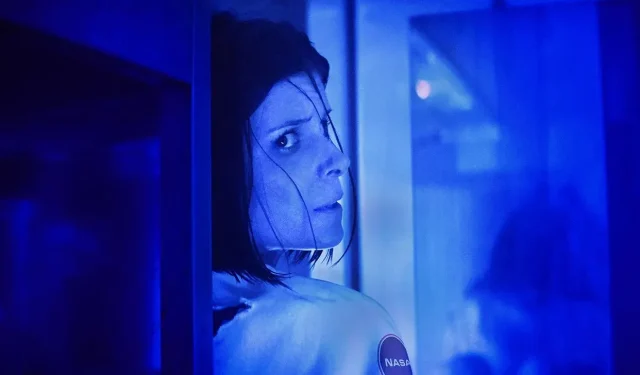Review of Jess Varley’s Debut Film, The Astronaut
Jess Varley’s first solo feature, The Astronaut, launches with an exhilarating opening scene. An overhead shot captivates viewers as rescue boats rush towards a container ship, which gently sways with the ocean’s movement. The urgency is amplified by an adrenaline-pumping score from composer Jacques Brautbar, known for his work on Bob Trevino Likes It and Skywalkers: A Love Story. This juxtaposition of emotional depth against a backdrop of tension sets a high-stakes atmosphere for the film.
In this intense moment, we meet Captain Sam Walker, played by Kate Mara, a NASA astronaut grappling with the aftermath of her first space mission. Rescuers are racing against time to save her following a disastrous landing caused by an unidentified force. This gripping introduction highlights Varley’s knack for building suspense, showcasing some of the film’s most compelling aspects amid its mixed execution.
The Journey Back to Earth
Having premiered recently at SXSW, The Astronaut follows Sam during the tumultuous week following her return to Earth. Her re-entry is filled with excitement, yet it is enveloped in stringent protocols that NASA mandates for returning astronauts. Due to the peculiar circumstances of her mission, she resides in a high-security bunker nestled within a verdant forest. The living space, crafted by production designer Alan Gilmore, exudes comfort with its mid-century modern décor, transforming it into a sanctuary meant for high-profile guests in need of state protection, as indicated by General William Harris, played by Laurence Fishburne.
Unraveling Mysteries
Days unfold with researchers monitoring her psychological and physical health through a range of assessments aiming to uncover changes resulting from her time in space. It becomes apparent that her experience has altered her perception; she begins to see objects that appear to float and suffers from debilitating migraines accompanied by a distressing ringing in her ears. Sam conceals her afflictions, fearing they could jeopardize her chances for future missions.
Additionally, Sam’s relationships take center stage. Her yearning to reconnect with her daughter, Izzy (Scarlett Holmes), and her strained marriage to her husband (Gabriel Luna delivers a nuanced performance) further complicate matters. Friends like Val (Macy Gray) urge her to hide her struggles, but as eerie events unfold, she begins to suspect that an extraterrestrial presence may have followed her home.
A Psychological Thriller
Varley, who penned the screenplay as well as directed, constructs the film’s initial half as an engaging psychological thriller. She employs genre staples, including jump scares and a pervasive sense of dread, effectively gripping the audience. The sophisticated sound design amplifies tension as Sam confronts her fears, initially attributing her unsettling experiences to mere hallucinations. However, as the paranormal occurrences escalate — such as unexplained sounds and doors opening on their own — her panic intensifies, leading her towards an emotional breakdown.
Mara delivers a powerful performance that embodies Sam’s mounting psychological strain. Subtle physical cues — nervous gestures and heightened anxiety during daily evaluations — illustrate her deteriorating state. As her family becomes increasingly concerned, a particularly disturbing encounter involving cicadas raises her husband’s alarm about the potential reality of Sam’s experiences.
Frustrations in the Finale
Despite its strong components, The Astronaut stumbles in its final act. Central themes of adoption — Sam’s own adoption and her choice to adopt Izzy — are interwoven into the plot, but Varley’s attempts to blend these elements with the thrilling narrative lead to some perplexing decisions. A heartfelt monologue revealing the origins of Sam’s anxieties abruptly shifts the film’s tone, feeling clumsy and unnecessary.
This narrative shift, while expanding the film’s themes, leaves many questions unanswered within its concise 90-minute frame. Varley’s ability to build suspense falters, diverting the film into a clichéd exploration of familial ties. The clumsy transition undermines the menacing beginning, rendering the film’s conclusion feel disconnected from the suspenseful tone established earlier.
Ultimately, The Astronaut struggles to reconcile its intent with execution, diminishing the impact of its chilling beginnings and leaving audiences wishing for a more cohesive resolution.


